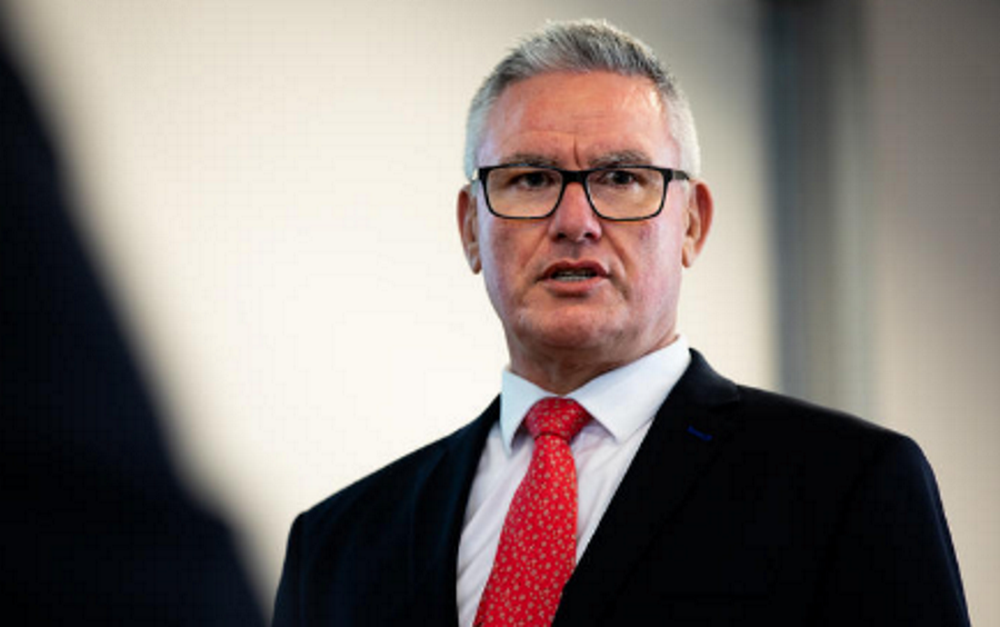Oranga Tamariki has been described as not fit for purpose and in need of transformative change by the panel appointed to be the Children's Minister's eyes-and-ears on the agency.
The Government created the advisory group in January to help reform Oranga Tamariki, as part of its response to widespread criticism of the ministry's policy of removing vulnerable children from their families.
The panel has this morning released its report and three over-arching recommendations, which the Government has accepted.
Minister for Children Kelvin Davis said the recommendations will see a major shift in decision making and encourage communities to work with Oranga Tamariki to protect children.
The group, made up of Matthew Tukaki, Dame Naida Glavish, Shannon Pakura and Sir Mark Solomon, focused on Oranga Tamariki's relationships with families, whānau, hapu, iwi, and Māori, its professional social work practices and its organisational culture.
In its report, the group has described Oranga Tamariki as not visionary and lacking strategic direction.
Board chair Matthew Tukaki said Oranga Tamariki needs to be relentlessly focused on improving outcomes for tamariki and their whānau and "enabling those capable of delivering this outcome most effectively to get on with the challenge."
That focus needs to be clearly articulated, Tukaki said, as Oranga Tamariki's approach to helping vulnerable young people has always been reactive.
The board concludes the ministry takes that approach because the Crown has "assumed the lead role in supporting tamariki and whānau without really knowing how to be effective in this."
The Crown has also undermined the role of hapū and iwi in leading their own communities, the report said.
Communities, hapū, and iwi told the advisory group that it is their role to protect their people and Oranga Tamariki enable them to do that.
The advisory board agrees with that view, the report says, and considers "early support and response to be an important avenue to improve care and protection outcomes for tamariki and their whānau, and also to reduce the need for state intervention".

Recommendations
The group has made three over-arching recommendations.
The first, is for Oranga Tamariki to engage with Māori collectives and communities over the next three months to better understand their ideas for change and the resourcing they would need.
The group notes many of Oranga Tamariki's existing services can be provided by Māori groups over time, which, they say, would allow the ministry's social workers to respond to emergency situations.
"We believe Oranga Tamariki needs ongoing help and guidance to support its shift to providing the most effective state care and protection system possible, but are firmly of the view that Oranga Tamariki is not the ultimate point.
"The ultimate point must be to prevent harm from occurring in the first place; we think it is obvious that Māori collectives and communities are best-placed to lead this work."
The second over-arching recommendation is that the Government clarify the purpose of Oranga Tamariki, including who it exists to serve.
It wants the Office of the Chief Social Worker restored, training for supervisors and practice leaders prioritised, a workforce development plan created and for national and regional offices to be better aligned.
It's clear Oranga Tamariki social workers are under significant pressure, the group said.
This is compounded by a lack of strong leadership and development and weak professional structures and systems, they added.
"Oranga Tamariki lacks strategic direction and is not visionary. It is self-centred and constantly looks to itself for answers."
The agency's systems are weak, disconnected and unfit for purpose, the advisory group said.
"It is an agency that is vulnerable to being blown off course by the headwinds it inevitably encounters over time."
The final recommendation is for a national Oranga Tamariki Governance Board to be established to oversee the changes.
Government response
The Government has accepted all of the board's recommendations and has developed an action plan to ensure they are implemented.
An independent Governance Board will also be established to ensure progress remains on track.
It has also issued Oranga Tamariki with clear guidance: uplifts, or without notice orders, should only be used as a last resort.
Minister for Children Kelvin Davis said the "new direction for Oranga Tamariki has been set".
"I want Oranga Tamariki to be the enabler that allows the regions to decide what is right for their particular area. To empower communities and Māori to help children and their families in a way that works for them."
There will always be a role for the state in the protection of vulnerable children, but the state has been at the centre of the approach until now, Davis said.
"This has undermined the ability of communities to ensure the wellbeing of children and their whānau. Our people often know what's best and need to be empowered to lead these decisions locally."
While there will always be a need for some children to be taken into care, all other community and whanau options should be exhausted first, Davis said.












